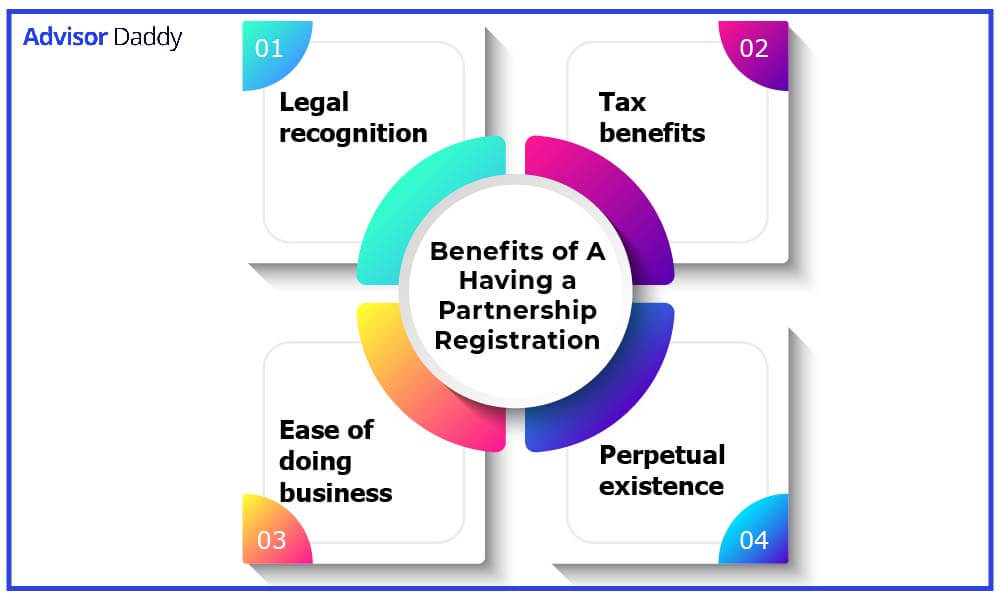- info@advisordaddy.com
- +91-9654312612
- Business Startup
Business Registration
Partnership Firm
Company incorporation
- LICENSES
BUSINESS LICENSE
Food license
Labour License
- BUSINESS COMPLIANCE
BUSINESS COMPLIANCE
- NGO
- Blogs
- CONTACT US
A partnership deed is a legal document that outlines the terms and conditions of a partnership between two or more individuals or entities.
A partnership deed is a legal document that outlines the terms and conditions of a partnership between two or more individuals or entities. It specifies the rights and obligations of the partners, as well as the management and operations of the partnership.
The partnership deed typically includes details such as the name of the partnership, the names of the partners, the nature of the partnership business, the capital contributions of each partner, the profit and loss sharing ratio, and the terms of dissolving the partnership.
The partnership deed is an important document that serves as a contract between the partners and helps to avoid potential disputes and misunderstandings. It is typically drafted by a lawyer and must be signed by all of the partners. It is recommended that the partnership deed be registered with the relevant authorities to make it legally binding.
In India, the fees for registering a partnership deed online vary depending on the state where the partnership is registered and the amount of the capital contribution. Typically, the fees range from a few hundred rupees to a few thousand rupees.
To register a partnership deed online in India, you must first prepare the necessary documents, such as the partnership deed and the registration application form. You must then submit these documents, along with the registration fee, to the relevant authorities, such as the Registrar of Firms.
Once the registration is approved, you will receive a certificate of registration, which will serve as proof of your partnership’s registration. It’s important to note that registering a partnership deed is not mandatory in India, but it is recommended in order to establish the legal status of the partnership and protect the rights of the partners.

In India, there are three main types of partnership firms: general partnerships, limited partnerships, and limited liability partnerships (LLPs). Each type of partnership has its own characteristics and legal implications.
General partnerships: In a general partnership, all of the partners are personally responsible for the debts and obligations of the partnership. This means that their personal assets, such as their homes and cars, can be used to pay the partnership’s debts. General partnerships are relatively easy to set up and offer flexibility in terms of management and operations.
Limited partnerships: In a limited partnership, there are two types of partners: general partners and limited partners. General partners are responsible for managing the partnership and have unlimited liability for the partnership’s debts and obligations. Limited partners have limited liability for the partnership’s debts and obligations, meaning that they are only responsible for paying the partnership’s debts up to the amount of money they have invested in the partnership.
Limited liability partnerships (LLPs): LLPs are a hybrid of partnerships and private limited companies. They offer the benefits of both, such as the flexibility of a partnership and the limited liability of a private limited company. In an LLP, the partners are not personally liable for the debts and obligations of the partnership, which means that their personal assets are protected from being used to pay the partnership’s debts. LLPs are relatively easy to set up and have perpetual existence, meaning that they do not dissolve when a partner leaves or dies.
There are several benefits to registering a partnership, including the following:
Legal recognition: By registering a partnership, you are establishing the legal status of the partnership and making it a separate legal entity from the partners. This can be helpful in establishing the partnership as a credible business and in protecting the rights of the partners.
Tax benefits: Registering a partnership may make the partnership eligible for certain tax benefits, such as the ability to pass on losses to the partners and to deduct certain expenses.
Ease of doing business: In some cases, registering a partnership may make it easier to do business, such as by allowing the partnership to open a bank account or apply for licenses and permits.
Perpetual existence: Registering a partnership may give the partnership perpetual existence, meaning that it will not dissolve when a partner leaves or dies. This allows the partnership to continue operating without interruption.
